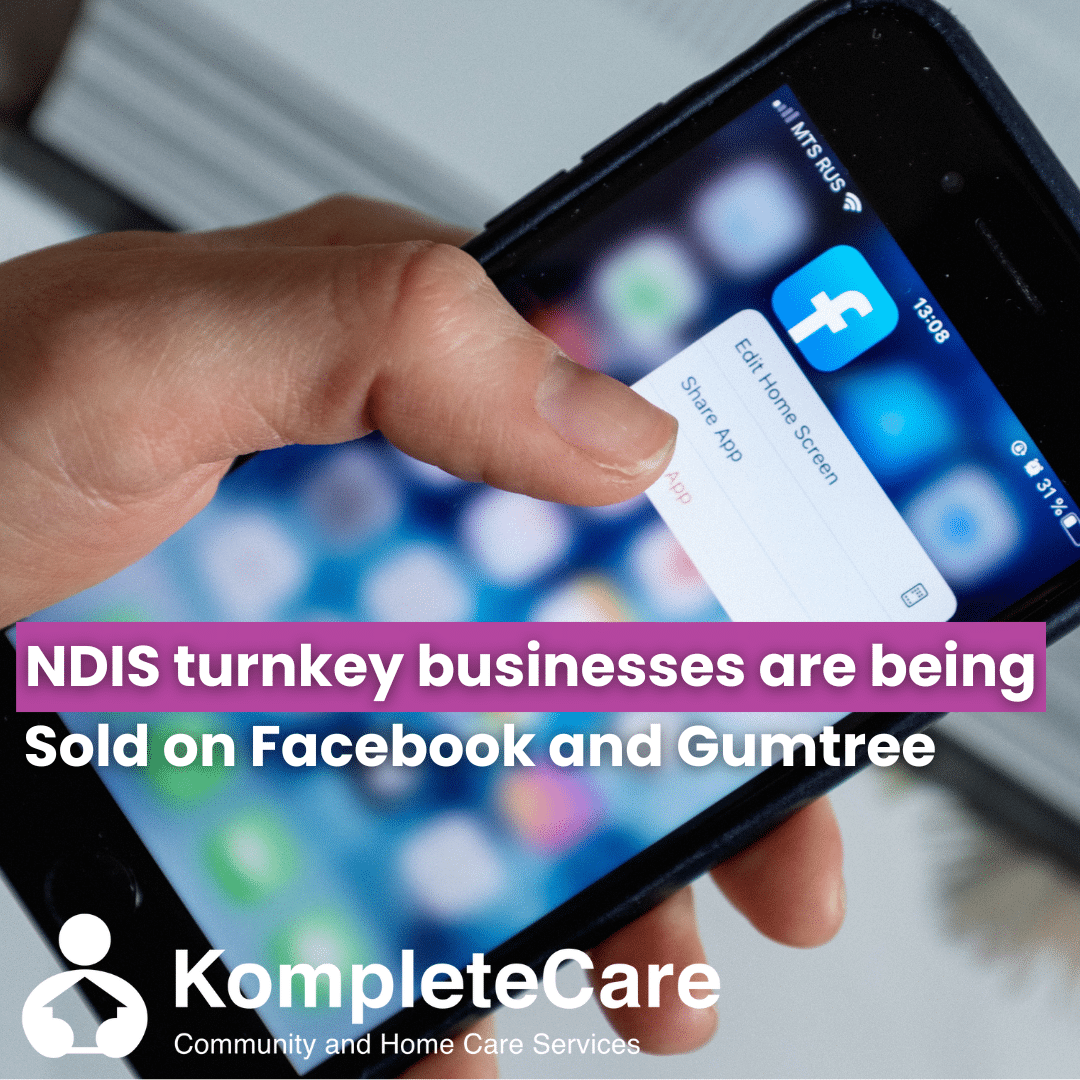A concerning trend has emerged in Australia’s disability sector: fully registered National Disability Insurance Scheme (NDIS) businesses are being sold online—often via platforms like Facebook Marketplace and Gumtree—without requiring buyers to have any prior experience or qualifications in disability support. These so-called ‘turnkey’ operations, sometimes advertised for as little as $45,000, come with full NDIS registrations, compliance paperwork, and established client lists, allowing new owners to start trading immediately.
For quality-driven providers like KompleteCare, who have spent years building trust within the community, this trend exposes a dangerous loophole in the system. Registration should represent far more than a certificate on paper; it should reflect rigorous audits, strict compliance checks, and above all, a commitment to participant wellbeing. When entire businesses can be bought and sold with little more than a bank transfer, the principle of care risks being overshadowed by profit.
A shortcut around safeguards
The ease of acquiring these businesses without undergoing the rigorous government application process has alarmed industry leaders and disability advocates. Becoming a registered provider normally requires submitting detailed documentation, undergoing third-party audits, and demonstrating the capacity to deliver safe, person-centred services. Experts warn that bypassing these steps could compromise the quality of care delivered to some of Australia’s most vulnerable citizens.
This growing market exploits the fact that the NDIS is now a $50 billion-a-year scheme, making it attractive to opportunistic investors. Sellers often highlight clients with larger funding packages as ‘more profitable,’ linking the highest earnings to participants requiring ongoing, intensive care.
The risks of unqualified ownership
The NDIS Quality and Safeguards Commission has confirmed it is monitoring providers who register but do not actively deliver services, warning that breaches of the NDIS Code of Conduct will result in compliance action. Yet, the rapid turnover of ownership through online sales creates obstacles to effective oversight accountability.
Industry leaders are concerned the lure of high profits in the NDIS sector may entice individuals with no genuine interest in disability care. Such motivations could lead to cost-cutting measures that compromise service quality and participant wellbeing.
Calls for stronger oversight
These developments have prompted widespread calls for stronger oversight and tighter regulation to ensure NDIS businesses prioritise participant welfare over profit. Advocates argue that allowing registered businesses to be sold without thorough vetting of new owners poses significant risks to participant safety.
In response, the NDIS Quality and Safeguards Commission has committed to increasing compliance activities to protect the rights of people with disability. They also emphasised these efforts are designed to ensure providers meet required standards and deliver safe, high-quality services.
For organisations like KompleteCare, this situation reinforces the importance of transparency and integrity in the sector. We consistently invest in ISO 9001 certification, ongoing staff training, and participant-first policies, demonstrating that delivering quality care requires time, resources, and commitment.
The selling of NDIS businesses online without adequate scrutiny is more than a regulatory gap, it is a direct threat to the integrity of the scheme and the safety of participants. While the NDIS was established to provide life-changing support for Australians with disabilities, unqualified operators risk undermining its mission.
As the scheme continues to evolve, reforms must prioritise participant safety over financial incentives. KompleteCare exemplifies a model of what sustainable, participant-centred disability support can look like: building services carefully, ensuring compliance through rigorous audits, and putting the wellbeing of individuals and families first.
Only by reinforcing entry standards, strengthening oversight, and elevating providers who uphold participant welfare can the NDIS remain a trusted, effective support system, rather than a marketplace for opportunistic business ventures.








